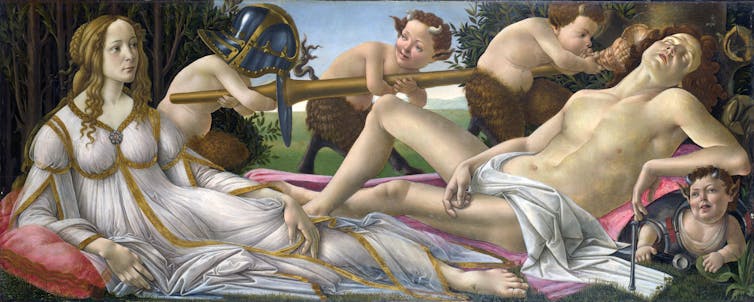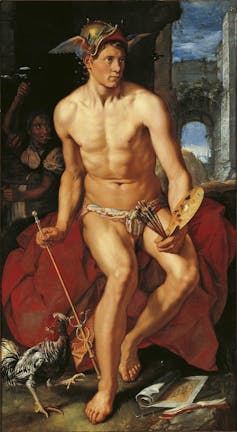
Aleksandra Pikalova/Shutterstock.com
Kristin Heineman, Colorado State University

Curious Kids is a series for children of all ages. If you have a question you’d like an expert to answer, send it to CuriousKidsUS@theconversation.com.
Why are there seven days in a week? – Henry E., age 8, Somerville, Massachusetts
Waiting for the weekend can often seem unbearable, a whole six days between Saturdays. Having seven days in a week has been the case for a very long time, and so people don’t often stop to ask why.
Most of our time reckoning is due to the movements of the planets, Moon and stars. Our day is equal to one full rotation of the Earth around its axis. Our year is a revolution of the Earth around the Sun, which takes 365 and ¼ days, which is why we add an extra day in February every four years, for a leap year.
But the week and the month are a bit trickier. The phases of the Moon do not exactly coincide with the solar calendar. The Moon cycle is 27 days and seven hours long, and there are 13 phases of the Moon in each solar year.
Some of the earliest civilizations observed the cosmos and recorded the movements of planets, the Sun and Moon. The Babylonians, who lived in modern-day Iraq, were astute observers and interpreters of the heavens, and it is largely thanks to them that our weeks are seven days long.
The reason they adopted the number seven was that they observed seven celestial bodies – the Sun, the Moon, Mercury, Venus, Mars, Jupiter and Saturn. So, that number held particular significance to them.
Other civilizations chose other numbers – like the Egyptians, whose week was 10 days long; or the Romans, whose week lasted eight.

Andrey Prokhorov/Shutterstock.com
The Babylonians divided their lunar months into seven-day weeks, with the final day of the week holding particular religious significance. The 28-day month, or a complete cycle of the Moon, is a bit too large a period of time to manage effectively, and so the Babylonians divided their months into four equal parts of seven.
The number seven is not especially well-suited to coincide with the solar year, or even the months, so it did create a few inconsistencies.
However, the Babylonians were such a dominant culture in the Near East, especially in the sixth and seventh centuries B.C., that this, and many of their other notions of time – such as a 60-minute hour – persisted.
The seven-day week spread throughout the Near East. It was adopted by the Jews, who had been captives of the Babylonians at the height of that civilization’s power. Other cultures in the surrounding areas got on board with the seven-day week, including the Persian empire and the Greeks.
Centuries later, when Alexander the Great began to spread Greek culture throughout the Near East as far as India, the concept of the seven-day week spread as well. Scholars think that perhaps India later introduced the seven-day week to China.
Finally, once the Romans began to conquer the territory influenced by Alexander the Great, they too eventually shifted to the seven-day week. It was Emperor Constantine who decreed that the seven-day week was the official Roman week and made Sunday a public holiday in A.D. 321.
The weekend was not adopted until modern times in the 20th century. Although there have been some recent attempts to change the seven-day week, it has been around for so long that it seems like it is here to stay.
Hello, curious kids! Do you have a question you’d like an expert to answer? Ask an adult to send your question to CuriousKidsUS@theconversation.com. Please tell us your name, age and the city where you live.
And since curiosity has no age limit – adults, let us know what you’re wondering, too. We won’t be able to answer every question, but we will do our best.
This article has been updated to correct the details on Earth’s revolution around the Sun.![]()
Kristin Heineman, Instructor in History, Colorado State University
This article is republished from The Conversation under a Creative Commons license. Read the original article.



